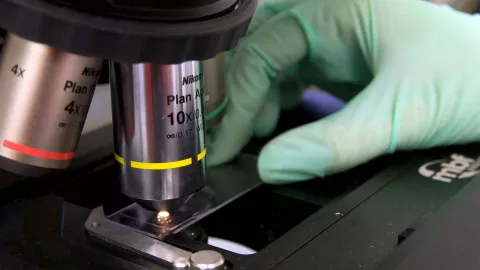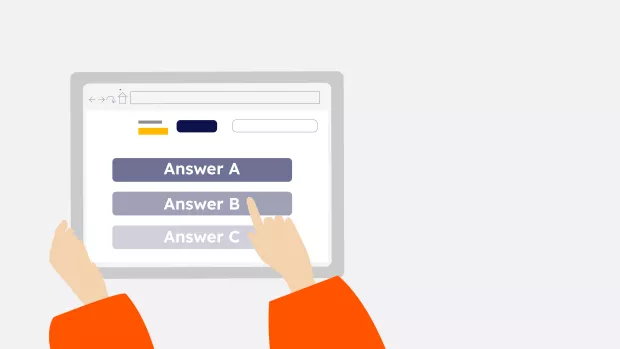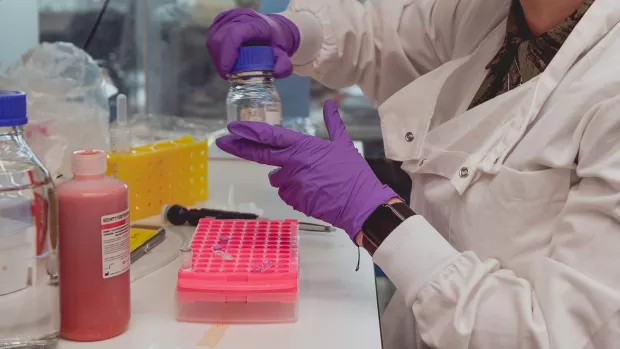
7 questions you asked us about taking part in research
It can be tricky to find out which studies are recruiting. And it can be daunting to sign up if you don’t know what research usually involves. So we’ve answered some of the most common questions we get asked about taking part in research.
I want to take part in research but I don’t want to test a drug. Is there anything else I can do?
Joining a clinical trial is just one of the ways you can take part in MS research. Clinical trials usually compare a new treatment with a placebo (a dummy drug), or an existing treatment. But there are so many other types of study you can take part in.
You could answer surveys about your MS from the comfort of your home on the UK MS Register. You could try out a new exercise programme or specific diet. Or you could give a sample of your blood or saliva for researchers to look at in the lab.
Is there any point in taking part in a clinical trial if I might be given a placebo (dummy drug)?
There are lots of potential benefits to taking part in research beyond the chance to trial a new treatment. Depending on the study, benefits might include:
- more contact with MS experts including physiotherapists, MS nurses or neurologists
- more monitoring of your MS, like regular MRI scans
- becoming part of a community of like-minded people with MS.
Why are there so many restrictions on who can take part?
All studies have criteria outlining who can and can’t take part to make sure the research is safe. And it means researchers can test the benefits of a treatment or lifestyle change as quickly and effectively as possible.
Most, but not all, include restrictions on age and having some other medical conditions. Older participants can be at a higher risk of experiencing negative effects. And living with multiple conditions could complicate trial analysis.
Even if you’re not eligible to take part in a trial, you could still be eligible for the treatment if it’s licenced.
Will I have to take time off work?
Some studies might need you to visit a hospital or research site during the day. Usually they’ll pay travel expenses to allow for this. During the pandemic, research teams developed new ways for people to take part in research remotely. And there are lots of studies you can take part in during your own time, like answering questionnaires or online exercise programmes.
Is it risky to test something new?
New treatments, activities or lifestyle changes are only trialled after there’s a very strong indication they’re safe. And you would be closely monitored to look for any side effects throughout a study.
Many studies we’re funding are testing drugs that are already used for other conditions. This means they can be quicker to trial as we already know they’re safe.
Can I change my mind if I don’t want to take part anymore?
Yes, you can withdraw from a study at any time. Just let the research team know. If you’re happy to, it’s helpful to let the researchers know why you’re leaving so they can improve the trial in the future.
Where can I find studies?
We know it can be quite difficult to find studies to take part in. Here are a few different ways you can find them:
- Speak to your neurologist, MS nurse, GP or physiotherapist. They can let you know if there are any local studies or clinical trials you might be eligible for.
- Visit the Be Part of Research website. Here you can search for MS studies in the UK by area.
- Search for MS studies recruiting around the world on the ClinicalTrials.gov website
- Keep an eye on our news stories for information on the latest studies
If you find a study you’re interested in, sometimes you can contact the researcher directly for more information. But if you want to know more first, or you’re unsure if a study is right for you, the best thing to do is speak to a healthcare professional.
Find out more about taking part in research
This blog first appeared in MS Matters magazine and was updated in May 2022.




